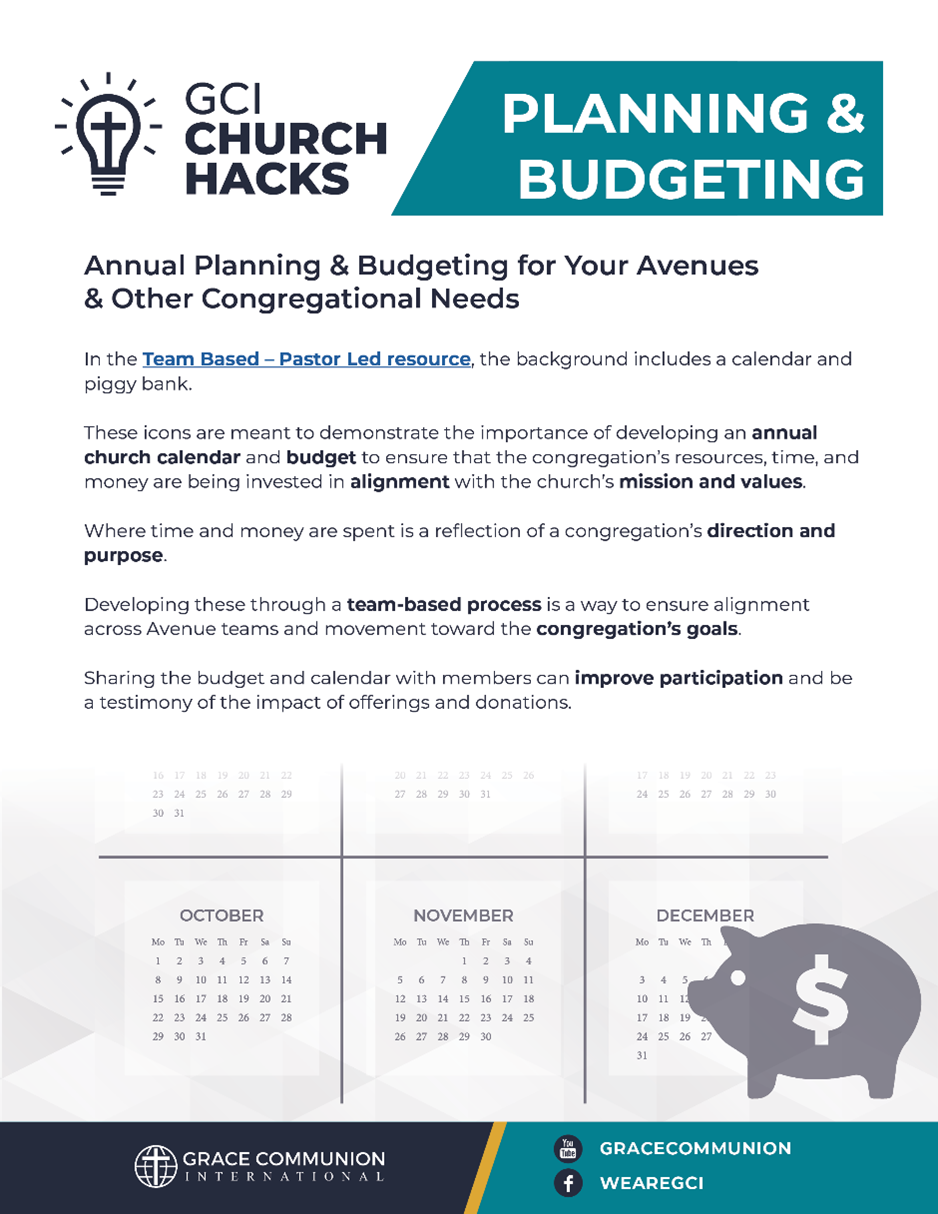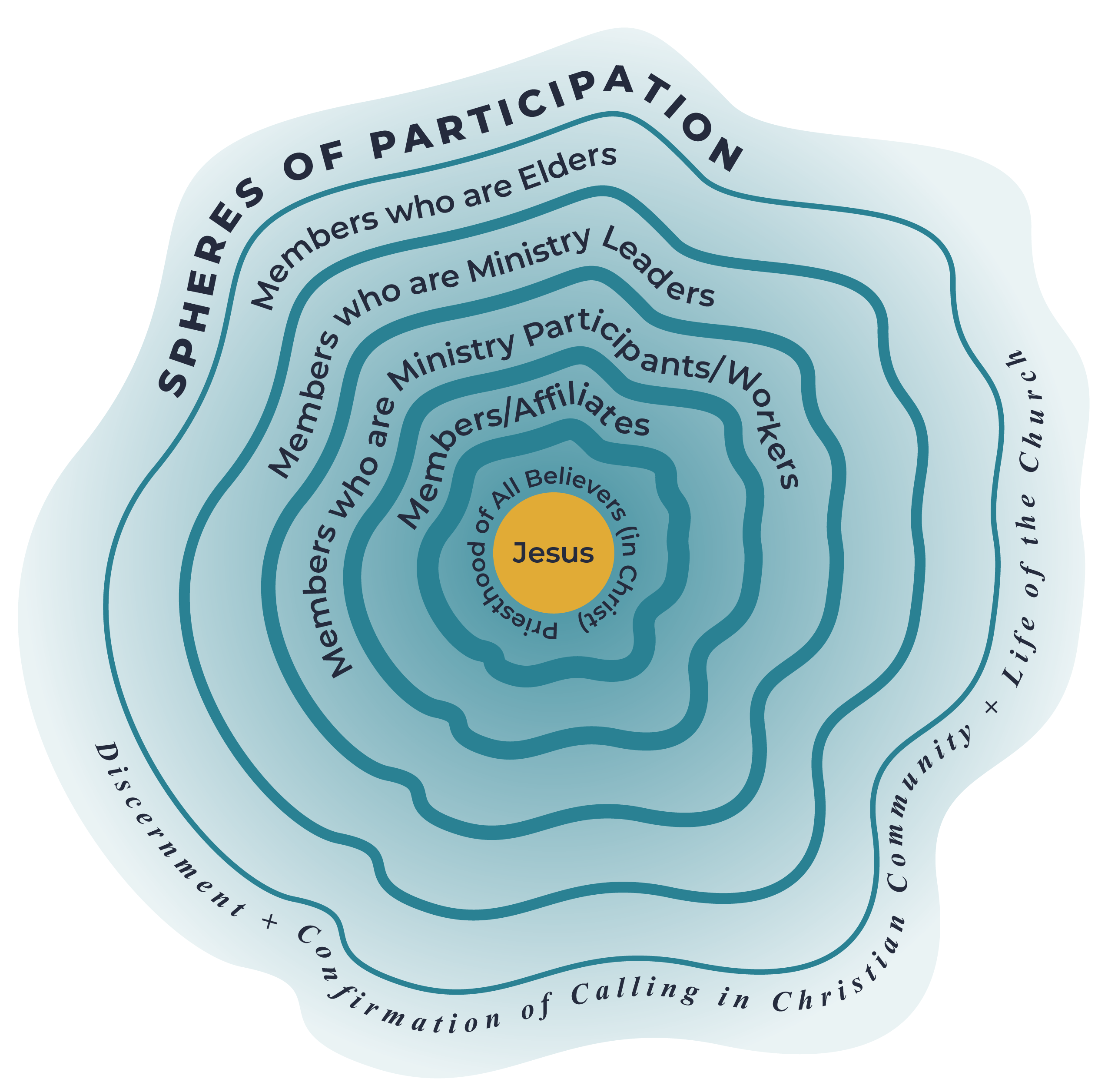The Way of the Triune God w/ Myk Habets
Welcome to the Gospel Reverb podcast. Gospel Reverb is an audio gathering for preachers, teachers, and Bible thrill seekers. Each month, our host, Anthony Mullins, will interview a new guest to gain insights and preaching nuggets mined from select passages of scripture, and that month’s Revised Common Lectionary.
The podcast’s passion is to proclaim and boast in Jesus Christ, the one who reveals the heart of God, Father, Son, and Holy Spirit. And now onto the episode.
Anthony: Hello friends, and welcome to the latest episode of Gospel Reverb. Gospel Reverb is a podcast devoted to bringing you insights from Scripture found in the revised common lectionary and sharing commentary from a Christ-centered and trinitarian view.
I’m your host Anthony Mullins, and it brings me joy to welcome our guest, Dr. Myk Habets. Myk is the head of theology at Laidlaw College in Auckland, New Zealand. Don’t we all want to go there?
And he’s the author of several books including The Spirit of Truth: Reading Scripture and Constructing Theology with the Holy Spirit, Trinitarian Theology After Barth, and Reconsidering Gender: Evangelical Perspectives. He also serves in pastoral ministry, alongside his wife and senior pastor, at Albany Baptist Church.
Myk, thank you for being with us. Welcome to the podcast, and since this is your first time joining us, we’d love to get to know you. Tell us a little bit about your story and how you’re participating with the Lord these days.
[00:01:31] Myk: Thanks. Thanks for that introduction. Thanks for the welcome onto the podcast. And feel free to cut me off at any point you need to. Sometimes when we tell our own stories, we could just go on and on.
But yeah, I’m head of theology at Laidlaw College, which is an Evangelical Interdenominational College here in Auckland, New Zealand. We have about 1000 students and about 700 of those are in theology, and the others are doing counseling and education. I’m a professor of theology, so systematic theology is what I teach and what I love. And I’ve been doing that for about 20 years.
And love it. I love teaching Christians. I love the fact that we’re able to open Scripture, the tradition, wrestle with reason and experience within context and then just bring people to a deeper understanding of the faith—faith seeking understanding, and that old quip that we use quite a lot, digging wells which go deep rather just wide and shallow is really what we’re about.
And so, I spend most of my time around Christians and Christian community when I’m not at work. I’m an associate pastor of Albany Baptist Church, as you said, where my wife is the senior pastor. We’re a small Baptist church—small but desperate to grow. So doing lots of missional and community work in our area, which is on the North Shore of Auckland, which is a wealthier part of the town. And of course, with wealth, the gospel doesn’t typically flourish. People don’t think they need Jesus or salvation, but we are now getting a lot of immigrants into New Zealand and so they’re coming and quite receptive, quite open to the gospel. So, there’s a mission field right on our doorstep, and that’s waking up some of our secular New Zealanders.
New Zealand where I work and live is one of the most secular countries in the world. So very different from parts of America, very different from other parts of the world, which show their religion publicly. Here you’re not persecuted for your Christianity or having religious views, but it is very odd. It’s very unusual to be religious and to have convictions, which makes it really post-Christian, post-secular, very post-modern, post everything, which creates challenges, but also those challenges are opportunities to go back to basics. And the gospel still speaks to people today. And so that’s encouraging in and of itself.
And my story as I came to faith as a young guy, my mother was converted by a lady in our community who desperately wanted to be a missionary to India, but her husband didn’t. He wanted to stay here, so she became a missionary to the people in her neighborhood. Through her, God converted a number of the wives who then converted their children. I was one of them. And the rest is history really.
I grew up in church youth group leadership, had some good mentors who pointed me in the right direction through a bit of a circuitous route. I investigated pastoral ministry, but I don’t have the real gifting or temperament for pastoral.
I looked into mission, but I don’t have a particular gift in evangelism. And so, teaching came a bit later for me, but when it did, it was an obvious thing where I’m gifted, where I’m passionate. And yeah, been doing that for the last 20 years.
And then writing books, so research and publishing, so perhaps 20, 30 books now. Many edited where I invite friends to contribute to things I think are important in the church needs to be thinking and talking about. So that’s a real privilege as well to have a wider international audience, through books, through conferences and meeting people like yourselves somehow online and been able to do podcasts, and that’s what’s brought me here today.
[00:05:43] Anthony: Amen and amen. We’re so glad that you said yes, and we ask God to have his way by his Spirit in Auckland as you continue to minister the gospel to those who are thirsty for living waters. May he have his way!
Let’s get on to the lectionary passages that we’ll be discussing for this month. We have four.
Matthew 28:16-20 “The Way of the Triune God”
Matthew 9:9-13; 18-26 “Man, Interrupted”
Matthew 9:35 – 10:8 “Workers Wanted”
Matthew 10:24-39 “Like the Master”
Let me read the first pericope of the month. It’s Matthew 28:16-20. It’s from the New Revised Standard Version, and it’s a Revised Common Lectionary passage for Trinity Sunday, which falls on June 4.
16 Now the eleven disciples went to Galilee, to the mountain to which Jesus had directed them. 17 When they saw him, they worshiped him, but they doubted. 18 And Jesus came and said to them, “All authority in heaven and on earth has been given to me. 19 Go therefore and make disciples of all nations, baptizing them in the name of the Father and of the Son and of the Holy Spirit 20 and teaching them to obey everything that I have commanded you. And remember, I am with you always, to the end of the age.”
Myk, this passage is going to fall on Trinity Sunday in the Lectionary cycle. And as sometimes our understanding of the Trinity is askew, it’s reduced often to unhelpful metaphors or seen, even worse, as a mathematical conundrum. So, let’s flip the script.
How is the Trinity so much more, and what would you have us to know about the way of the triune God revealed in this pericope?
[00:07:42] Myk: Thanks, Anthony. Yeah. Where do we start and where do we finish? Contemporary Christians have to be reminded (or probably now instructed, I think) that the church did not invent the doctrine of the Trinity around the year 300 AD or something like that, which some people have purported.
The early Christians, the first Christians right from the disciples, at least midway through Jesus’ ministry, were invited by Jesus to worship Yahweh as Father, Son, and Holy Spirit. And as they watch Jesus, as they live with Jesus, as they walk and talk with Jesus, they start to see him do things, say things, act in particular ways, which resembles Yahweh.
And I love that text halfway through his ministry, they see him praying—Jesus praying. He did it often. And they nudge each other. I think we read in between the texts, they nudge each other. You ask him; I don’t want to ask him. You ask him, I’ll feel silly. So, someone asks him. Lord, teach us how to pray.
And it’s ridiculous really, that a Jew, a faithful Jew, would be asking someone how to pray because they’ve had several thousand years of being taught how to pray. They know how to pray. So, it’s not really a technique question; it’s not a “how” question that they’re asking. It’s really a “who to” question.
We pray to God; we pray to Yahweh. Behold, the Lord your God. The Lord is one. We do that every day and often, but you look like God. You talk like God. You act like God. Are you Yahweh? And Jesus answered them, I think, in the first two words of that Lord’s prayer, our Father.
And I’m sure they had a theological conference because I’m a theologian. Of course, they did. And they withdrew, said he wants us to pray, “our Father,” but he’s not our Father. He’s the father of the Lord Jesus Christ. And Jesus is the exclusive son of the Father. And so, what’s he asking us to do? And I think in the “our Father,” they get the gospel of the triune God. He is only the Father of the Son.
Unless we are the son, he’s not our Father. And that would be blasphemy that we are the son of God. Or the next best thing, unless we are united to the Son, unless we are in the Son. And therein is the gospel, as Christ sends the Spirit who unites us to Christ. And Christ brings us before the Father. We acknowledge and we worship that Yahweh is indeed the Father, Son, and Holy Spirit.
And here in this text, Matthew 28, the famous commission, the Great Commission, go make disciples. Don’t just make converts, whatever that might translate to. Don’t just get notches in your belt. Don’t just share a brief message and walk on, but make disciples, make people who will follow the living God.
And as you do baptize them, that sacramental, that means of grace, that ceremony, baptize them into “the name” (singular) Father, Son, Holy Spirit, the one God who is three persons. And from there, I think the Trinity becomes the ground and grammar of our theology, of our Christian lives, of all that we do.
And surprisingly, I think, for some today, the Trinity is one of the most practical doctrines, if not the most practical doctrine we have. It’s not a set of esoteric teachings that are reserved for theologians or students who want to pay lots of money to go to a classroom. It’s actually incredibly practical.
The fact that God is personal, that God defines what it means to be a person. Those three persons, one being in mutual relationship with one another in Jesus Christ, the eternal Son who is of the same substance as the Father, who becomes human without ceasing to be. God shows us that the image of God is actually the image of Christ—one who is rightly related to God, to the world, to creation, and to himself.
And the Trinity teaches us that God is personal, that God is absolute, that God is relational, that God is love. And we could unpack each of those four things and many others. We worship a God who is not static. We worship a God who is not removed.
We worship a God who was dynamic in his very being, who was love, who before the creation of the world was already involved in loving relationship. He didn’t need the world to love, he didn’t need creatures to love. He’s not that kind of a being. In some ways, he is not a being at all really. He is a completely different thing. He is God. He is the self-existing triune one.
And I think in that dynamic trinitarianism and that utterly relational triunity, that again becomes the ground, the grammar of all that we do, all that we say, all that we are. And then we start reading scripture, like this passage but so many others, in that Trinitarian key: if there is one God who is Father, Son, Spirit, then was God in the creation narrative the triune God?
And again, we see the Father, and I think we’re supposed to read that as the Father speaks; the Word, the dabar, the logos, the Son goes forth; the Spirit hovers over the waters of chaos. As St. Basil said in the early church, there seems to be a pattern, the Father, if you like, purposing or directing; the Son achieving, accomplishing; the Spirit perfecting.
And we see that pattern throughout almost every story and scripture, either explicitly or implicitly. We come into the New Testament, and it just becomes so clear. How creation came into existence is how our spiritual rebirth comes into existence. As the Father sends the Son, as the Son sends the Spirit, as the Spirit draws, convicts, convinces, unites us to Christ, as Christ brings us back into the presence of the Father.
So, we can now pray “our Father,” and then we go back out into the world in this work of participating in Christ’s mission to do Matthew 20, to teach others to make disciples, to start the birth of the church communities of the body of Christ that are worshiping in spirit and in truth.
And so I think this is one of these fantastic texts, one of these great texts—not just about evangelism (although it is about that), not just about the church and building it (it is about that), but it’s about those things because it’s first about who God is: the God of love, the God of grace, the God of glory, who is Father, Son, Holy Spirit.
And that gives us a message that gives us an impetus, a compulsion to share that love with others. And we call that mission. So, we could go on and on, but those are some of my opening thoughts about that text.
[00:14:59] Anthony: In other words, the way that we often view the Trinity is just a reductionist view. You’re saying, ultimately the ground and grammar of theology are a way of understanding not only God, but the entirety of the world, is fantastical because of who he is and what he’s accomplished in his Son.
You talked about the rest of this passage, about how he tells us to go and make disciples. But before he does that, because of the beauty, the dynamic nature of this triune God, he gives us indicatives of grace first and surrounds all the imperatives he gives us, in his grace.
So, what would you want us to know about the imperative here that’s often referred to as the Great Commission?
[00:15:45] Myk: Yeah, I’ve been reflecting on that. I don’t have anything unique to say other than the fact that I am struck always when I attend a baptism today, as to how unusual this is, whether it’s as infants or as adults.
I’m a Baptist, so it’s mostly adult believers’ baptisms, I attend. But’s an enacted parable. It’s a sacramental act and means of grace whereby we are cleansed of our sin. We are united to Christ. We testify to the reality of faith in our lives. We rise from the baptismal grave into Christ’s new life in anticipation of the resurrection.
As the end of days comes closer, let us not be found lacking in evangelism. So, I’m just struck by the unusualness in our world of this deeply Christian act, and it just reminds me that physically, when we baptize people or are baptized, we are physically entering into the strange new world of the Bible.
As Barth said a long time ago, this alternate universe. This everywhere—what is it? Everywhere, always, all at once! What is the movie? You could almost be describing the Christian worldview really: the already, the not yet; the king is close, the kingdom is near, all this type of teaching.
And I think baptism is a microcosm of that. So, the imperatives here and the indicatives, we must go. Why do we go? Not because we have to, not because it’s some external law. We must. In the sense that, how can we not share the euangelion, the good news? How can we not want to baptize? How can we not want to replicate and reproduce?
This is what Christians have been doing since day one. This is what Jesus does. He could have stayed, as we read in the New Testament, Colossians and Philippians, without considering deity a thing to be exploited. He offered himself, he humbled himself. He humiliated himself. He became a servant for us and for our salvation to the point of death, even death on a cross.
And then God exalts him. He didn’t have to do that. We don’t have to do anything, I guess, but again, we default back to, but who is the God who loves and saves? It’s the triune Lord of grace and glory. Who are we as Christians? We are those who are becoming like the one we worship. And so, the indicatives and the imperatives here are connected.
I am told to go because I really do want to, and I want to go because I’m told. And there’s a circularity about faith and works. I think that Christians somehow get we are rewarded for doing what Christ does in us and through us, like children where we reward them with their own gifts in order to gift them back to us.
And it just seems to make sense.
[00:18:51] Anthony: Yes. All right, so let’s transition to our next pericope of the month. It’s Matthew 9:9-13; 18-26. It is the Revised Common Lectionary passage for Proper 5 in Ordinary Time, which falls on June 11. Myk, would you do the honors of reading it for us please?
[00:19:11] Myk: Yeah, thanks.
9 As Jesus was walking along, he saw a man called Matthew sitting at the tax-collection station, and he said to him, “Follow me.” And he got up and followed him. 10 And as he sat at dinner in the house, many tax collectors and sinners came and were sitting with Jesus and his disciples. 11 When the Pharisees saw this, they said to his disciples, “Why does your teacher eat with tax collectors and sinners?” 12 But when he heard this, he said, “Those who are well have no need of a physician, but those who are sick. 13 Go and learn what this means, ‘I desire mercy, not sacrifice.’ For I have not come to call the righteous but sinners.”
18 While he was saying these things to them, suddenly a leader came in and knelt before him, saying, “My daughter has just died, but come and lay your hand on her, and she will live.” 19 And Jesus got up and followed him, with his disciples. 20 Then suddenly a woman who had been suffering from a flow of blood for twelve years came up behind him and touched the fringe of his cloak, 21 for she was saying to herself, “If I only touch his cloak, I will be made well.” 22 Jesus turned, and seeing her he said, “Take heart, daughter; your faith has made you well.” And the woman was made well from that moment. 23 When Jesus came to the leader’s house and saw the flute players and the crowd making a commotion, 24 he said, “Go away, for the girl is not dead but sleeping.” And they laughed at him. 25 But when the crowd had been put outside, he went in and took her by the hand, and the girl got up. 26 And the report of this spread through all of that district.
[00:20:50] Anthony: Hallelujah. Praise God. It’s been said, Myk, that if Jesus didn’t eat with sinners, he would’ve always dined alone. So, what should we make of the God revealed in Jesus, that he would so openly feast with notorious crooks?
[00:21:06] Myk: You wouldn’t write a sanitized version of the life of a great Savior or a God and have them hanging out with shady characters like this.
If you were making it up, if this was a fabrication, if this was some story that was mythological, these episodes wouldn’t be in sacred Scripture. There’d be nothing there would even remotely tarnish the reputation of the holy figure or the God that we’re talking about. And yet for us and as Christians, if these texts weren’t there, I wonder how many of us would still believe.
I certainly appreciate the fact that Jesus is a real character. He’s a real character who relates with real people in a fallen world. That historical particularity of walking through first century Israel and encountering people he loves, the Israelites, people he weeps over, but he doesn’t shun them. He reaches out to them, and in this story, he lets them reach out to him.
That’s a scandal, that an unclean woman would touch him, actually defiling him and making him unclean. And yet here the opposite happens. She reaches out the unclean one and the clean one, Jesus, heals her and sanctifies her, and sets her apart and restores her back to community. This is precisely why I like Jesus. This helps my faith.
Quite frankly, if this type of realism was not in Scripture, I think I might doubt his real existence, or he certainly wouldn’t be relatable. He wouldn’t be our sympathetic high priest. Our fellow human, homoousion, as the church says, of the same substance, as much as us as he is God.
I’m a sinner. This text tells me I’m not beyond the reach of a holy God. I’m not beyond the reach of a pure Jesus Christ. That even in my sin, even in my shame, even in my fallenness, I’m not beyond the reach of an all-holy God who has left heaven, who has descended to the earth, who took the form of a servant in order to redeem and glorify me.
And so the fact that these people entering the house of the dead, being touched by an unclean woman, dining with Pharisees and calling tax collectors as followers, asking little people who climbed trees because they were too arrogant to see him on their own terms and dining in his house with people and sinners—his is what Christ invites himself to do in our world as well. Maybe not physically, but nonetheless real.
And so, I love stories in church, I love testimonies in church, not necessarily of people’s conversions—I’m happy to hear about people’s Sunday school and childhood experiences over coffee one-on-one—but in church, what I really appreciate is those powerful stories: how I came to Christ, but more importantly, how I remain in Christ because we don’t stop sinning, sadly, once we become Christians.
And I think today, particularly with the mental health challenges we have, with the high levels of anxiety and depression because of what’s going on in the world (certainly here in New Zealand, we have really high rates of mental illness amongst young people), what they really need to hear is these types of stories. You are not beyond the reach of a holy God who will accept, redeem, heal, and restore. And so, for me, these are the stories that need to be there, as well as the mountaintop ones. If that makes sense.
[00:25:10] Anthony: It does. Amen. If we were writing the gospel story, the narrative, we wouldn’t write it like this, would we?
This is not the kind of God we would’ve come up with, but thanks be to God, this is the God we have revealed in Jesus Christ.
[00:25:23] Myk: We prefer the strong stuff, the powerful stuff. We’d probably paint him as a muscley, six foot six. We just buy into all the worldly tropes of power.
Jesus just demolishes all that and says, no, that’s just a social construct. Real power is the ability to stoop down low and relate to people where they’re at and then lift them up. That’s real power, and I need reminding of that every day.
[00:25:51] Anthony: And thanks be to God that the Son of man has been lifted up and is drawing all people to himself.
And once again, in this passage, Myk, we see that our Lord is interrupted. It happens constantly. So, if you are preaching verses 18 – 26 to your congregation, what would you preach about these ongoing interruptions and the fact that Jesus, our Lord, is willing to submit to the situation?
[00:26:17] Myk: Yeah. I’m the personality type that is very task focused. I have lists and I have to-dos, and I pride myself on getting through those and rewarding myself when things are ticked off. And when people interrupt those plans and when other stuff comes along, my first reaction, I have to confess, is how this is going to put my whole day out. This is not helping my productivity or my efficiency whatsoever.
[00:26:46] Anthony: Yes, we should hang out a lot, Myk. We’re wired the same.
[00:26:50] Myk: Yeah, that’s right. And Jesus has got more important work to do than I have, and yet he keeps getting interrupted, and he seems to welcome it.
He just goes with the flow, and it is incredibly intentional. And so how would I preach this? I’d start with a story of my own testimony, like I just did, saying how annoying, how frustrating! There’s a time and place for everything you get in line take a ticket wait your turn.
And yet for Jesus divine interruptions are the norm, not the exception. We should expect God to bring people and events into our lives, not to interrupt our real work, but actually this is our real work because people are not a means to an end. They are the end, and Jesus knew that, and we need to learn that. So, I’d probably talk about that.
And then second, Jesus shows his absolute sovereignty. All creation was made by him and for him. And here we see a glimpse of that reality through those healings. And I think that’s really important. I’ve preached about the woman who touches him before.
And that sermon was entitled “From Shame to Wholeness,” where I talk about people who enter into the life of Jesus, and he takes them from where they are in their shame, in their embarrassment by being unclean, by being on the margins, and through simple but powerful acts, he brings them to the center. This unclean woman was made clean. Her whole livelihood would’ve been spent on the margins, outcast. She, too, would’ve been one of those women who collected water in the heat of the day because she was avoiding people. Now she’s restored back into community.
And third, I think Jesus is not beyond being asked for things. The faith of this person to ask on behalf of his daughter was immense. He was clearly desperate, as we all would’ve been. But what faith! And Jesus has compassion, and he’s loving, and he reaches out, like the woman here. But then with the man, goes to his house, takes time out of whatever else he was doing to take a detour. But what we actually find is this is not a detour, this is the point. He was probably there at that time in that place precisely for this. And he honors the faith of the woman. He honors the faith of the man. And so, for us too, I would want to say that we too can reach out in desperation.
We too can ask in faith, we too can expect Jesus to heal, Jesus to intervene, Jesus to bring from the margins back into the center. That’s the type of God that we have.
And when we compare Jesus to many other holy figures in history and today, when we compare him to other gods, he doesn’t compare. He simply contrasts. Other gods (we won’t be too specific), but you simply serve, you simply do. Their entire faith’s based around simple allegiance. And god says, jump. And they say, how high. We too are soldiers under command. That’s true. We too are citizens of a kingdom which has a king, and we do what he says. But it’s never framed, or very rarely framed, like that.
It’s a relational king and a relational kingdom where he invites his subjects to ask, to come before him repeatedly and ask for audacious things: healing, wholeness, life for a dead person. Yeah, it’s just utterly audacious. And Jesus isn’t even mildly offended by that. There’s no rebuke, there’s no, who do you think you are? You’re not important enough for me to do that. And it’s almost, yeah, that was actually on my to-do list today. I just needed you to ask me about it.
And so I go back into the world and I would want to preach to the congregation that as we go about our doctoring and nursing, our building, our plumbing, whatever it is that God has got us doing on our daily basis, that we would also be looking out for the people that he brings into our lives and those small tidbits of information are probably the main narrative of that day. And if we’re not attuned to those, we’re going to miss opportunities that God has for your day. So “look out for the small things in life, because they’re probably the main things in life” might be the title of my sermon.
[00:31:39] Anthony: Yeah, that’s a good word. And it never stops being astounding that this God would condescend to humanity, enter in, take on the form of a servant and die. And not just any death, death on a cross. I mean it’s just holy other, it transcends anything that we know. And how can it lead to anything but worship? Like we always say, theology should lead to doxology or we’re doing something wrong.
Let’s transition to our next pericope of the month. It’s Matthew 9:35-10:8. It is a Revised Common Lectionary passage for Proper 6 in Ordinary Time, which is June 18.
35 Then Jesus went about all the cities and villages, teaching in their synagogues and proclaiming the good news of the kingdom and curing every disease and every sickness. 36 When he saw the crowds, he had compassion for them because they were harassed and helpless, like sheep without a shepherd. 37 Then he said to his disciples, “The harvest is plentiful, but the laborers are few; 38 therefore ask the Lord of the harvest to send out laborers into his harvest.”
Then Jesus summoned his twelve disciples and gave them authority over unclean spirits, to cast them out, and to cure every disease and every sickness. 2 These are the names of the twelve apostles: first, Simon, also known as Peter, and his brother Andrew; James son of Zebedee and his brother John; 3 Philip and Bartholomew; Thomas and Matthew the tax collector; James son of Alphaeus and Thaddaeus; 4 Simon the Cananaean and Judas Iscariot, the one who betrayed him.
5 These twelve Jesus sent out with the following instructions: “Do not take a road leading to gentiles, and do not enter a Samaritan town, 6 but go rather to the lost sheep of the house of Israel. 7 As you go, proclaim the good news, ‘The kingdom of heaven has come near.’ 8 Cure the sick; raise the dead; cleanse those with a skin disease; cast out demons. You received without payment; give without payment.
I find it interesting, Myk, that Jesus told the disciples to ask the Lord to send workers into the harvest field, and they became the answer of that prayer because they were sent out themselves. What should we make of this, if anything?
[00:34:00] Myk: Yeah, that’s an interesting observation. I take a principle from that: be careful what you pray for.
Seriously though I think we often pray to God for things he’s already given answers to. I certainly heard that, hear that a lot in church where—again, I’m not being mean about people—but we often hear lots and lots of prayers to God for this and that, and I’m sitting there thinking he’s already answered those prayers. He’s already given us the answers to those things. He’s already given us half of what you’ve talked about through Jesus or in Scripture.
And I think we need to be more educated, if I could say that. (I would say that cause I’m a theologian, of course.) But God has actually given us more than sometimes we even think. And so just being reminded of that is a good thing.
And then here, I think, is a leadership lesson. Leaders aren’t those who climb the top of a tree or climb onto a throne and then dictate and delegate to others. There may be some delegation in large organizations, that’s fine. I’m not against that, but leaders aren’t ones who don’t do the work and get others to do it.
Leaders are ones who do the work, and they’ll lead in the work. And I think Jesus is teaching these disciples here a really countercultural lesson: don’t be like the Romans. Don’t set yourself up in legions and hierarchies and try to get up that totem pole of success. That’s not how it works.
The harvest is there, the workers are a few. So, you guys lead the way. You show what it’s like. You do the work. That is what leadership looks like. Perhaps Jesus is reminding the disciples not to get too big for their boots. We see on various occasions, disciples arguing with each other about who might be the greatest in the kingdom and who might sit at the head of the table and close to Jesus.
And I think here, perhaps Jesus is trying to say to us as a church (and we need it), that often that the higher you get in church leadership, the more you should still be doing the work, not not doing it. It’s a curious thing in church circles where the bigger a church gets, the senior pastor somehow invariably becomes a CEO [chief executive officer].
And the very things that they wanted to do as a pastoral leader initially are the first things they give up, pastoral care for one of them. I’ve never quite understood that, other than perhaps a sacrifice to power and the regime of the world. And so here, I think the gospel of Jesus Christ for leaders and disciples is there’s no ladder to climb.
Those with leadership have greater responsibility and will be judged more than others because they have to continue to do the work. And so, I do find it interesting. Yeah, be careful what you pray for because most often, we are the answer to the solution. We are the solution to the problem. I should say the answer to the prayer.
Yeah. I think that’s a really curious thing in that text.
[00:37:17] Anthony: Yes. And I appreciate what you said that often what we’re praying for, it’s already been given in Jesus Christ. And so, when we say God bless you, and of course, that is an appropriate thing to say, but we should also say God has blessed us.
Just look at Jesus. We are ultimately blessed. Jesus gave the instructions—oh, go ahead.
[00:37:38] Myk: Yeah, just these sometimes, constant prayers: show me your will for my life (as kind of the teenage, young adult angst.) Yeah, he’s done that quite clearly in Scripture. He is showing us his will for each of our lives. If we are faithful and passionate and true to him, then the rest will take care of itself. We seem to be praying for the insignificant, rather than the important things, if that makes sense.
And it is just a constant challenge not to conform the gospel to our culture, but to conform our culture to the gospel. And so, in our—particularly in our western industrialized, over-industrialized worlds where we’ve learned to control and manipulate everything, we then try to do that in our faith. And again, here, I think Jesus is saying quite clearly to us today: you won’t manipulate or control me. If you want to harvest, then you are going to be the harvesters. That’s how it works.
And when we get back to grassroots stuff, we fall in love with it all over again, talking to people, sharing the faith. When someone actually receives Christ, there’s rejoicing in heaven. There’s also rejoicing on earth, and again, sadly for some of us, it’s been a long time between drinks, if you like.
Oh, I did that when I was in youth group, and we did a lot of that stuff when we were young adults. Now that we are mature and we’ve got mortgages, and we’ve got jobs and we’ve got children, and we’ve got all the rest, we tend not to do that anymore. And again, I take from this text, you never outgrow doing the work of God and particularly leaders.
[00:39:29] Anthony: Yeah. You talked about how in Western society, it’s a challenge, ongoing challenge, not to conform our prayers to culture and the way that we view our worldview, if you will. But also, not to center ourselves. Jesus is the center, not me. But often I’ve got to catch myself that I’m praying in terms of myself at the center of the story, which makes my prayers pretty small.
And we want to remember who’s at the center of all this. The one who is at the center gave instructions to herald Good News, which is the kingdom of heaven has come near!
Let me ask you this, is it possible to herald that good news about the kingdom, but not really understand what the kingdom is?
[00:40:16] Myk: Yeah, that’s interesting. Yes and no. Surely, you can’t herald or proclaim that of which we know nothing about. Otherwise, we wouldn’t have anything to say. But neither can we know everything about what the kingdom of God means. So, it’s a yes and no. And I don’t mean that to escape the question.
We can have confidence in the reality of his reign, the scope of his reign. We can proclaim that to all and sundry, and we can do that as a five-year-old, as a 15-year-old, as a 50-year-old. You know that we don’t need a massive IQ for any of that stuff. Jesus loves me this I know for the Bible tells me, that’s as good as it gets.
But so, we can hear all that, we can hear all the kingdom to that extent, but to think we know everything about the kingdom, wow that’s where we get in trouble. That’s where people like me, theologians, can sometimes get in trouble by thinking we know more than we do. So, for me, it’s having that deep and utter confidence in the clear things that Jesus tells us.
Jesus is our Lord and Savior. He lived, died, rose again, and is coming again. For us, we know these things for a fact. Other things that we do believe, we hold a bit more lightly. I don’t know what is the exact best form of church government. I’m in a Baptist church. I think that’s really close. But so does every other church and every other form of church government, and we just agree to disagree on that stuff. I don’t know what that might look like in the kingdom.
I wrote a little book, a popular book on heaven, an inkling of things to come, where I make this point that there are things we know for certain, and we should proclaim that from the rooftop. But in between those things, there are things we don’t know for certain. But Jesus gives us hints. He gives us teaching. We have in Scripture little insights.
So why did he give us some information, but not everything? So why didn’t he tell us everything or nothing? And I think the reason is he gives us enough to pin our hope on, enough fact, enough reality, enough truth, that we have hope and that rises within.
And then the other things I think he wants us to talk about as Christians. I want you to talk about this amongst yourself. What will heaven taste like? What will heaven smell like? What will heaven sound like? And that too is part of this—I call it after Lewis, a baptized imagination. James Smith might call it a social imaginary. Again, Barth calls it the strange new world of the Bible. We start to see the world in different ways.
There are more possibilities open to us than the non-Christian can see. I’m looking out my window now. They see a tree. We see a tree created by a good God. And so, the tree leads us to God. For others, it’s just a tree. So, I think we can proclaim the kingdom, we can proclaim the reality of it. We just need to be chasing that. We don’t know the full. And we keep bringing that back to Scripture, back to Christ, and back to discussion in the church—that’s social imaginary.
Which is something that we haven’t done very well, I think, in modernity. The last couple of hundred years, it’s all become mathematics (to be crude), rather than imagining the reign and realm of Christ now with a chastened humility.
[00:44:08] Anthony: That is so profound what you said about imagination, and it made me think of a Eugene Peterson quote from his book, Tell It Slant.
He said, Jesus used language to teach, but unlike the teaching in schools, lecture is designed to do the thinking for us. Often Jesus is teaching sparkle with scintillating aphorisms. He wasn’t so much handing out information as reshaping our imaginations.
I think that is so true.
[00:44:38] Myk: Yeah, that’s a good quote. I’ve got a post-grad student at the moment who’s trying to answer the question, what is a theologically informed definition of the imagination. So, I’ll be pointing her to that book. It’s helpful.
[00:45:01] Anthony: Good. It’s fantastic.
Our final passage of the month is Matthew 10:24-39. It is a Revised Common Lectionary passage for Proper 7 in Ordinary Time, which is June the 25. Myk, would you read it for us please?
[00:45:08] Myk: Yeah, I’d love to.
24 “A disciple is not above the teacher nor a slave above the master; 25 it is enough for the disciple to be like the teacher and the slave like the master. If they have called the master of the house Beelzebul, how much more will they malign those of his household! 26 “So have no fear of them, for nothing is covered up that will not be uncovered and nothing secret that will not become known. 27 What I say to you in the dark, tell in the light, and what you hear whispered, proclaim from the housetops. 28 Do not fear those who kill the body but cannot kill the soul; rather, fear the one who can destroy both soul and body in hell. 29 Are not two sparrows sold for a penny? Yet not one of them will fall to the ground apart from your Father. 30 And even the hairs of your head are all counted. 31 So do not be afraid; you are of more value than many sparrows. 32 “Everyone, therefore, who acknowledges me before others, I also will acknowledge before my Father in heaven, 33 but whoever denies me before others, I also will deny before my Father in heaven. 34 “Do not think that I have come to bring peace to the earth; I have not come to bring peace but a sword. 35 For I have come to set a man against his father, and a daughter against her mother, and a daughter-in-law against her mother-in-law, 36 and one’s foes will be members of one’s own household. 37 “Whoever loves father or mother more than me is not worthy of me, and whoever loves son or daughter more than me is not worthy of me, 38 and whoever does not take up the cross and follow me is not worthy of me. 39 Those who find their life will lose it, and those who lose their life for my sake will find it.
[00:46:52] Anthony: Wowzer. That’s a difficult statement. Jesus said he didn’t come to bring peace, but the sword in verse 34, and this seems a bit antithetical to him being the Prince of Peace. So, help us reconcile it.
[00:47:07] Myk: Yeah. Tough text. Time and again, Christ put little sayings like this to the people. I’ve come to divide families; I’ve come with violence. I’ve not come to bring peace.
And in context, I don’t think he—I’m sure he doesn’t mean he is violent; he is chaotic, or he wants us to hate our earthly parents. We know that from other texts. He is challenging, I think, the basis of our allegiances. We are to put Christ first in all spheres of life, above family, work, nation guild and so forth.
And he puts that in the most striking (and I think rather Hebraic way) possible. It’s love or hate, it’s black or white, it’s night or day, it’s me or the devil, Beelzebub. This is the genre of this particular text.
I’m the son of a Dutchman. I relate to this. This is how we think. It’s absolutes, and at times, you need the absolutes. At other times you need the nuance. Here, it’s the absolutes, but sometimes the nuance in between that is lost on us, and Christ knows. Blessed are the peacemakers for they shall be called sons of God. Remember that from the beatitudes? But the Son of God was crucified for his beliefs. The son of God was violently killed for his beliefs, for being a peacemaker.
People don’t like peace, and they certainly don’t like the peace of Christ. And so, when we offer peace, when we offer the peace of Christ, when we offer the gospel of the good news to others, it ironically can look like violence. What you mean I’m going to have to–and then they just give their catalog of things they think they’ll have to give up.
Some of which they will. You mean I can’t serve God and money? You mean I can’t continue to take advantage of people? You mean I can’t continue to steal and rob and cheat? You mean I can’t continue to be a narcissist? I’m not the center of the universe?
And that gospel of peace, that gospel of grace is so often encountered in a fallen world as violent because it will separate people from their allegiance to money, to family, to nation, to work to everything. My identity now is meant to be a child of God primarily, not primarily the husband of Odele, not primarily the father of Sydney and Liam, not primarily a theologian, not primarily a homeowner or whatever I might put my trust, my allegiance, my identity in.
And so, I think in today’s terms, this is Jesus challenging identity politics. He’s challenging identity theory. He’s challenging it all. He’s saying if there is anything in your psyche that is at the basis of who you are other than me and allegiance to me, then it’s wrong.
And in the most striking terms possible, you must hate your father and your mother to be a follower of me. Again, this hate, this is a very Hebraic way of speaking. It’s a very Teutonic, German, Dutch way of speaking. It’s love or hate. Those are the only options. There’s nothing in between in this type of text.
We need to read it in that context. And Jesus again, he’s human. He’s utterly human. He’s completely a hundred percent human. And so, he knows what will arrest us, what will get our attention, what will cut through the—we could use lots of synonyms there—but cut through the nonsense.
And so, the rich young ruler comes off, I paid all the laws, what more must I do to be saved? And Jesus just looks at him and knows his heart and says, why don’t you sell everything, all of it, every single thing? And then come follow me.
Now he doesn’t ask all of us to sell everything we have. That’s not a requirement to enter the kingdom, that we have no possessions. Jesus had some possessions. We know that Jesus relied on a number of disciples and followers in his larger group who had wealth to fund his ministry. So, he wasn’t against that. Jesus visited friends of his, Mary and Martha who owned a house, maybe they had at other property.
But he’s saying to that rich young ruler, you are serving money. That’s the basis of your entire identity. You need to change that to being a child of God. And then the way you earn money, the way you think about money, the way you spend money will be completely different.
For other people, it’s family and they need to be broken of that primary allegiance. For others, it’s their nation, king and country, president and country before all else. Sadly, I think we are seeing that being played out on an international stage with Russia and Ukraine. Unfortunately, the Russian Orthodox Church is fully supportive of the Russian government’s invasion of Ukraine and the slaughtering of innocent people.
I just think that’s reprehensible, and I think Jesus would say to them, this text, you need to put me first and hate your country. Again, it doesn’t literally mean you must hate the country that you’re part of. You should be a good citizen. We’re told that elsewhere, but where is your primary identity? And so, I think again, Jesus is the master of knowing what humanity and humans are.
He puts his finger on the things we love most. What could be dearer to our hearts than family? Your mother, your father, sibling, children and he says, even them. I must be the primary identity marker for you.
And then what we find in the gospel, and I think we probably have to go on to say that today, is that when Jesus, when God is our primary identity—I am a child of God; I am in Christ Jesus; I am full of the Spirit—when that’s the basis of my identity, it will actually make me a better spouse, a better husband. It will make me a better father. It will make me a better citizen. It will make me a better slave in this context, worker in the workplace. And Jesus knew that.
So, it’s a powerful text. It’s a confronting text. It’s a black and white text, but I think in context, it doesn’t lose any of its power. But it does explain part of the nuance that Jesus is talking.
[00:54:04] Anthony: You’ve already spoken to this, but maybe you’d want to put some more meat on the bone, so to speak. As I look over verses 37 – 39, the word “surrender” keeps coming to mind.
What does it mean to surrender to the lordship of Jesus Christ above all else? Anything else you’d like to add there?
[00:54:23] Myk: Yeah. Speaking as one sinner to many others. I’m no saint, and so surrendering is a daily thing. So, I don’t want people who don’t know me listening to this to get the wrong opinion of me. I’m just a fellow sinner.
What does it mean? I think it means standing on a precipice, a ledge a thousand feet in the air and having Jesus say, I want you to step out in faith and I will be there. I want you to trust me to save you. And I think the Christian life is a daily struggle in stepping off the ledge and into the presence of God.
And it’s a struggle because the things Jesus talked about, family and work and the many other things, they do have a hold on us. And daily, this surrender idea, this practice, this virtue of surrendering is God releasing us from the shackles of all that binds us to the earth.
I’m reminded of this wonderful little C.S. Lewis notion. He says, I think it was St. John of the Cross who talked about God being a sea, an ocean, and inviting us in further. And what we miserable creatures do, we tie our rope around our waist, we tie it to a peg of steak, and we stake that into the sand on the seashore, and we slowly let ourselves out with the safety rope so that we’ll just get up to our ankles, maybe up to our knees, but no more so that we won’t get swept away and lose control. Whereas God wants us to cut that rope, dive into the ocean, which is him. And he will keep us afloat, and he will take us into the depth.
So, I see surrender as a daily practice of trusting the faithfulness of God. And the more we do that, the more we’re loosed from those shackles of all the things that bind us to the earth.
But then the irony is, as I said earlier, we find that when we do that, we do become better people, better parents, better spouses, better citizens. This is the great irony, the great reversal of the Christian gospel: to those who give up everything and accept Christ. Christ then gives them everything.
[00:56:53] Anthony: Everything. Everything. Hallelujah. Praise God. And I want to remind our listening audience that what we see revealed in Jesus is a God who keeps the covenant, he receives the covenant and accomplishes it in the one person Jesus Christ. And in this way, the covenant giving, and the covenant keeping is a partnership within God’s self on humanity’s behalf. Hallelujah. Praise God.
Myk, you’re a beloved child of God. Thank you for joining us today. Thank you to our listening audience, and certainly I want to thank two key people that help make this podcast happen. Reuel Enerio, our producer, and Elizabeth Mullins, who does the good work of transcription. Thank you both.
And Myk, it’s our tradition here at Gospel Reverb to end in prayer. So, would you pray a prayer that the Spirit leads you to, to bless our listening audience?
[00:57:42] Myk: I’d love to and thank you again for the opportunity.
I’d like to finish by praying something from the Orthodox Paschal Liturgy. Let us pray.
It is fitting and just to sing to you, to bless you, to praise you, to give thanks to you, to worship you in every place of your dominion. Out of nothing, you brought us into being. And when we fell, you raised us up again, and you will one day bring us to heaven and grant us a place in your future kingdom for all these things.
We thank you and your only begotten Son and your Holy Spirit for all these blessings, both known and unknown, manifest and hidden, that have been bestowed upon us. We thank you, Almighty God, Father, Son, and Holy Spirit. We pray these things in Jesus’ name, amen.
Thank you for being a guest of Gospel Reverb. If you like what you heard, give us a high rating and review us on iTunes, Spotify, or wherever you get your podcast content. Share this episode with a friend. It really does help us get the word out as we are just getting started. Join us next month for a new show and insights from the RCL. Until then, peace be with you!



 By Bill Hall, National Director, Canada
By Bill Hall, National Director, Canada
 By Justine Paolo G. Parcasio, Associate Pastor, Philippines
By Justine Paolo G. Parcasio, Associate Pastor, Philippines By Ceeja Malmkar, Love Avenue Champion, Grace Communion Surrey Hills, OK
By Ceeja Malmkar, Love Avenue Champion, Grace Communion Surrey Hills, OK

 By Cara Garrity, Development Coordinator
By Cara Garrity, Development Coordinator



 It’s important … that we’re intentional in our worship services, in our discipleship groups, even in how we’re engaging with our culture, in thinking about, what is God doing? How is God moving in this season of the calendar? And that helps us live out our faith in our daily lives, because we are not a people who are only in our brains. And we’re not transformed by just the information we receive. We have a faith that we live out. And the Holy Spirit’s in us, helping us participate in that. If we’re following the worship calendar, it helps us remember that Jesus is at the center of his story, that he moved history to draw humanity to himself. … we follow the calendar to be formed more into the fullness of the image of Christ, to have the full understanding of who God is.
It’s important … that we’re intentional in our worship services, in our discipleship groups, even in how we’re engaging with our culture, in thinking about, what is God doing? How is God moving in this season of the calendar? And that helps us live out our faith in our daily lives, because we are not a people who are only in our brains. And we’re not transformed by just the information we receive. We have a faith that we live out. And the Holy Spirit’s in us, helping us participate in that. If we’re following the worship calendar, it helps us remember that Jesus is at the center of his story, that he moved history to draw humanity to himself. … we follow the calendar to be formed more into the fullness of the image of Christ, to have the full understanding of who God is.


